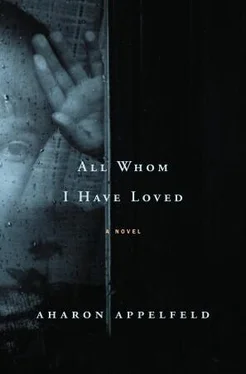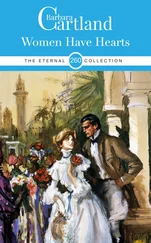“I have no idea which Victor you're talking about,” said the innkeeper, returning to his counter. Father was drunk and was now confusing scenes from the past with the present, even mentioning little Tina. Yet he wasn't angry and he didn't threaten. At noon he announced, “I'm off to sleep,” and he took a long nap.
Toward evening he woke up and we returned to the monastery. Father was not drunk, but he was hazy and spoke about distant things that were apparently troubling him. In the waiting room, he took the abbot by surprise, asking him if it wouldn't be proper to give Henia a Jewish funeral, as she'd been born Jewish and had grown up in the Jewish orphanage in Czernowitz.
“But she did convert,” said the abbot weakly.
“But she divorced her husband.”
“But not Christianity.”
“Isn't it proper to return a person's lost honor to them?”
“What honor is sir referring to?” The elderly monk smiled.
In the meantime, more monks had gathered and Father's self-confidence ebbed. “If you think otherwise,” he said, “I won't interfere. Death rules us all, and it makes no distinction between Jews and non-Jews. In the end, we'll all die. And yet, it seems to me that it's preferable for a person to be gathered to his forefathers. As the Bible says, Born a Jew and died a Jew and returned to his resting place, even if it's an imperfect resting place,” he said with a grimace.
“Henia converted. It was her wish,” said the elderly monk in a soft voice.
“Correct, sir. I spoke of matters of leniency.”
“Henia converted. It was a full, religious conversion. I performed it myself.”
“That's right. Perhaps that's how it has to be.”
“She was Christian to the depths of her soul.”
“I do not doubt it, sir.”
I was astounded by Father's conciliatory tone. I had never seen him throw his arms about in such a sloppy way. And the entire time we stood there, Father was pleasant to his hosts, praised the medical care and the way we had been treated. Finally, in a voice not his own, he said, “Henia is in faithful hands,” and burst into tears.
During the funeral Father was drunk and could hardly stand. Two monks supported him. It was a funeral without music. Father did not cry but talked loudly. The monks and the people who had gathered did not hush him, but it was clear that his confused talking disturbed them.
The wagon carrying the coffin made its way heavily. Father suddenly asked if there was still far to go, and a monk answered him as if speaking to a child, “We're already at the graveyard.” The sky was blue but not open like at Halina's funeral. I stood next to Father, tired and numb.
The ceremony was conducted by one of the tall monks, who read from a book and then spoke at great length. For some reason it seemed to me that his talking prevented Mother from rising to heaven. Father apparently felt as I did. “Henia!” he burst out. “What have they done to you?” No one hushed him, and he fell silent. I did not see the lowering of the coffin and the covering of the grave.
After the funeral we returned to the monastery. Father had not yet sobered up. He turned to the monks who were supporting him as if to his brethren in suffering, telling them about his journey to Bucharest and about the anti-Semites who had tried to ruin his exhibition. The monks paid no heed to his words, but Father went on, telling them about Victor, calling him a “ministering angel.” Faint smiles flitted across their faces; then they were serious again.
During the meal after the funeral Father kept talking. He spoke of the anti-Semites who contaminate the very air we breathed. He did not speak of Mother. One of the monks said of her, “She was a noble woman, and even in sickness she conducted herself with nobility.”
“And let me tell you,” said Father, “it's a pity that she married that man.”
“But you had in fact divorced,” observed the monk.
“That is true, but we never stopped loving each other.”
The monk blushed.
Then the monks went to pray. “Come, let's go out,” Father said, gripping my arm, and we left immediately. The last light was still flickering in the sky as we walked along the road, and the puddles had dried up.
We left the mountain that night. At first Father wanted to go to the monastery to thank the monks, but then he decided to set off right away.
“Why leave at night?” The innkeeper tried to dissuade him.
“I still have to get to Storozynetz tonight.”
“The roads are terrible — no one will want to set out at night.”
“I'll pay good money.”
Father drank but did not get drunk. He told me that he was thinking of taking the night train from Storozynetz to Czernowitz; immediately after that he would rent an apartment and begin to paint. “Life without painting is death.” I did not envision him renting a room; instead, I saw him sitting with his friends in a tavern, drinking and cursing. I had already learned: what Father desired had very little bearing on what he did.
At midnight, before the inn closed, Father saw a wagon and stopped it. The driver hesitated at first, but eventually he agreed. Father wrapped me up in two sweaters, put a hat on my head, and we set off. As it turned out, the road had dried, and although it was a steep downward slope, the horses were careful and were able to brake the wagon when they had to.
Father buried his head in his coat. I saw again the tall monks who stood in the corridor and listened to him talk. They turned to him and said, “Why not join us? There's a large library here, and light-filled rooms where you can sit and paint. Why wander from place to place?” Father gave them a long answer with many explanations, of which I understood not a word.
The feeling that Mother was in the sky and that I was traveling to her in the wagon became much more real, perhaps because the skies suddenly cleared.
“Are you cold?” Father asked.
“No,” I said, and I heard the sound of the word leaving my mouth.
Again I saw Mother as she was during the summer vacation: tall, with long, flowing hair, floating on the black waters of the lake.
We reached the railway station in Storozynetz sometime after midnight. It was empty, and the ticket-office windows were shuttered. Father asked the guard when the next train was leaving, and he answered indifferently, “Just five minutes ago.” Two dim bulbs lit the platforms, and darkness surrounded us on all sides. We had no choice but to go to town and look for a hotel. “I was wrong,” said Father, as we set off.
I remembered Storozynetz well, but in the darkness it looked different. The tall chestnut trees cast their heavy shadows on the sidewalks. We went from street to street, finally stopping at the entrance of a low house with a sign on it: HOTEL SALZBURG. Father knocked on the door. A woman opened it, and Father asked her for a bed for the night. She offered us a room with two beds.
I slept only fitfully, and again I saw the funeral. Now it seemed to me that Mother's funeral, unlike Halina's, had been hasty and short, with the monks hurrying through the prayers and dispersing rapidly.
Father awoke. “Why aren't you sleeping?” he asked.
“I can't fall asleep.”
“Count to a hundred.”
That old ploy, which Mother would suggest from time to time, sounded ridiculous to me now. But I started counting and fell asleep.
We were late getting up. Father's request that he be woken in the morning for the six o'clock train must have been forgotten. The cleaning woman claimed that she had knocked on the door and called out that it was five o'clock and had heard Father call back, “Very good, thank you.”
Читать дальше












